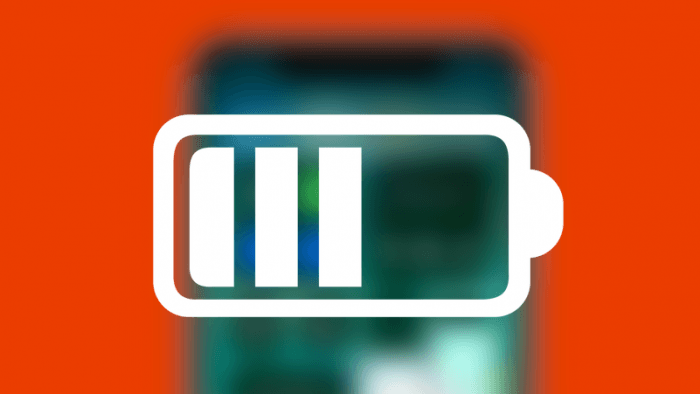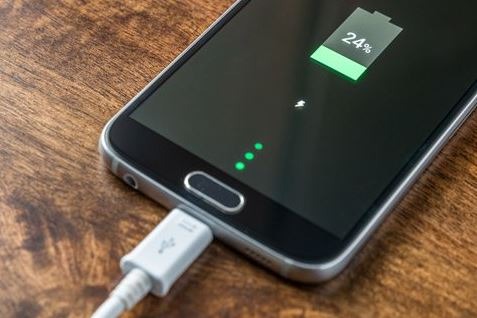
Today, most modern gadgets are equipped with Lithium Ion Battery Myths And Realities, but not so long ago, manufacturers equipped their devices with only nickel batteries. Of course, such changes in the configuration of modern electronic devices could not occur without consequences, one of which was confusion among users. This article is devoted to what would dispel at least some of the Myths that have arisen and accompanying lithium-ion batteries.
A New Device Definitely Needs To Be Fully Charged
This myth is the most common among consumers. In fact, things are this: when buying a new gadget, it’s not necessary to immediately run to the outlet and charge the battery to the limit. The bottom line is that the manufacturer recommends charging the device after the first start, so that a modern crown of the creation of electronic equipment can determine the actual capacity of the battery or in other words calibrate the battery performance. In most cases, at the time of purchase, the battery is already calibrated and ready for use, and therefore does not need to be fully charged.
If The Device Is On The Charge For A Long Time – The Battery Is Worn Out And Will Soon Be Out Of Order
Another tenacious stereotype about lithium-ion batteries. These batteries have a built-in function that automatically turns off the power when the battery level reaches 100%. Thus, leaving the device connected to the network for a long time – you absolutely do not affect the battery life. However, we still recommend disconnecting the device from the network, immediately after charging. Since the device connected to the network has a property to heat up, which can adversely affect its performance.
The Battery Life Depends Solely On The Number Of Charge-Discharge
It would seem a fairly logical stereotype: if the battery life depends on the number of charge-discharge cycles, then it is more profitable to use the battery to the maximum. However, this is far from the truth. Full charge, and then a full discharge of the battery wear it much faster than the incomplete charge.
Lithium-ion batteries lose their capacity over time, even if they were not used. After they are one year old – their resource is reduced by about 10%, after two about 20-30% (depends on the quality of the battery and storage conditions). Therefore, when buying a new device, be sure to pay attention to the year of release of the battery.
Don’t Charge Your Phone Overnight
It’s completely fine to charge your battery medium-term. Indeed, it’s the most ideal approach to ensure you have a full, delicious battery to get you as the day progressed.
This legend originated from the days when we had nickel-particle batteries in our telephones that experienced something many refer to as “memory charge,” where on the off chance that you didn’t give them a chance to drain totally, the batteries would “disregard” the part that didn’t get utilized.
The present telephones use lithium-particle batteries, which don’t experience the ill effects of memory misfortune and are sufficiently shrewd to direct their influence on the board. When you plug a cell phone into a charger, it will quit charging once it achieves 100 percent.
Don’t Let Your Battery Drain Completely Before Charging
Not exclusively do you not have to do this, but rather you likewise shouldn’t. Each lithium-particle battery accompanies a settled measure of charge cycles (the occasions you can energize to 100 percent and summary to 0 percent). An iPhone has a life expectancy of around 400 to 500 charge cycles. In any case, that doesn’t mean you can just connect it multiple times—it implies you have 500 opportunities to release it from a full charge to no charge by any means. In this way, in the event that you let your battery deplete totally consistently, it will most recent 500 days. On the off chance that you charge it before it depletes and finishes it off for the duration of the day, you’ll extend the time those 500 charges will last.
There is one motivation to give your battery a chance to deplete totally. On the off chance that it “passes on” when the battery symbol is appearing positive charge, it implies the battery should be recalibrated. Depleting it right down then energizing it again should fix the issue.
Don’t Use Your Phone While It’s Charging

There is no threat in utilizing your phone while it’s charging. This fantasy originates from fears about batteries overheating. Lithium-particle batteries can be risky on the off chance that they have any kind of assembling deformity, yet this is uncommon. Be that as it may, if your telephone is ever exorbitantly warm (while charging or not), get it looked at promptly.
Another issue to consider is fake chargers. Charging links contain contributes them, and on the off chance that you are not utilizing a producer-affirmed link, you could harm your phone. Purchase name-mark chargers for security and to help charge your phone all the more successfully.
A few people say that utilizing your phone while it’s charging can influence your gadget to detonate, burst into flames, or shock you. While not exactly keeping pace with the Korean idea of fan demise, it’s as yet a really implausible yarn.
Don’t Charge Your Phone Through Computer Or Laptop
On the off chance that anything, charging somewhat more gradually is most likely useful for batteries, Griffith says. This returns to those lithium particles again – would you say you are detecting a topic here? The more gradually you charge a battery, the less strain that is put on lithium particles and the structures tolerating them, and the less potential harm to the battery. That is the reason makers put breaking points on gadgets so they don’t charge too rapidly.
Saving Power By Killing Apps
This is just false, and it’s likewise flawed guidance. By murdering and restarting applications, over and over, you are really utilizing more assets (and more power) than if you simply let the application remain out of sight. Rather than shutting your applications, utilize a portion of these tips in case you’re low on juice and can’t get to a charger.
Don’t Use Any Unofficial Charger Because It Will Damage Your Phone
Not all phone chargers
are made equivalent, and that could damagingly affect your phone’s battery
life. Chargers have a wide range of controls that limit the measure of current
conveyed and stop it charging when the battery is full, however, some off-mark
chargers probably won’t have such thorough security settings.
Also, if an excessive amount of current is conveyed to a battery, that could
mean tearing out such a large number of those lithium particles and prompting a
similar sort of corruption you read about before. Saying this doesn’t imply
that all off-mark chargers will be this terrible, Griffith notes, yet you’re
still presumably happier staying with an official model.
Turn Off Wi-Fi And Bluetooth And It Will Maximum Your Battery Life
Aside from the screen, one of the greatest depletes on battery life is the vitality your phone squanders attempting to discover and associate with Wi-Fi or information systems. In the event that you’ve at any point seen your battery diving while on a train, it’s most likely in light of the fact that your gadget is staying at work longer than required to associate with a versatile system. “On the off chance that you can associate with something stable like if there’s WiFi on the train, it’s presumably better to interface with that,” Griffith says. Decreasing screen brilliance and the time it takes your phone to rest are additionally simple approaches to expand your battery life.
FAQs
Here are some frequently asked questions (FAQs) about myths related to lithium-ion batteries:

Q1: Do lithium-ion batteries need to be fully discharged before recharging?
Ans: No, this is a myth. Lithium-ion batteries actually have longer lifespans when recharged in smaller increments and don’t need to be fully discharged.
Q2: Is it true that lithium-ion batteries should always be stored at 100% charge?
Ans: No, storing lithium-ion batteries at 100% charge for extended periods can lead to capacity degradation. It’s recommended to store them at around 50% charge for long-term storage.
Q3: Do lithium-ion batteries suffer from the “memory effect”?
Ans: No, lithium-ion batteries do not exhibit the memory effect that was a concern with older battery technologies like nickel-cadmium (NiCd). They can be charged at any state of charge without negative consequences.
Q4: Is it safe to leave lithium-ion batteries charging overnight?
Ans: Leaving lithium-ion batteries plugged in overnight is generally safe due to built-in charging safeguards in most devices. However, it’s a good practice to unplug them once fully charged for energy efficiency.
Q5: Can using third-party chargers and cables damage lithium-ion batteries?
Ans: It’s possible. Using non-certified or low-quality chargers and cables may not provide the correct voltage and current, which can potentially damage the battery and device. It’s advisable to use reputable accessories.
Q6: Do extreme temperatures affect lithium-ion batteries significantly?
Ans: Yes, both extremely high and low temperatures can harm lithium-ion batteries. Operating and storing them within recommended temperature ranges is essential for battery health.
Q7: Is it true that freezing a lithium-ion battery can revive it?
Ans: No, freezing a lithium-ion battery is not a recommended method for reviving it. It may, in fact, cause more harm to the battery and should be avoided.
Q8: Can overcharging a lithium-ion battery cause an explosion or fire?
Ans: While overcharging can be dangerous, modern lithium-ion batteries typically have protection mechanisms that reduce this risk. However, it’s still crucial to avoid overcharging to ensure safety.
Q9: Is it necessary to let a new lithium-ion battery “break in” before regular use?
Ans: No, there is no need for a break-in period with modern lithium-ion batteries. They can be used as soon as they are charged and do not require special conditioning.
Q10: Can you extend the lifespan of a lithium-ion battery by freezing it or heating it in an oven?
Ans: No, attempting to extend the lifespan of a lithium-ion battery through extreme temperature treatments like freezing or heating is not advisable. Such methods can lead to damage or even safety hazards.
It’s important to dispel these myths about lithium-ion batteries to ensure safe and effective use of devices powered by them. Proper care and adherence to manufacturer guidelines are key to maximizing battery life and performance.
Final Words
Lithium-ion batteries have become an integral part of modern life, powering everything from smartphones to electric vehicles. However, several myths and misconceptions surround these power sources, which are essential to debunk for a better understanding of their capabilities and limitations.
One common myth is that lithium-ion batteries must be completely discharged before recharging. In reality, these batteries are more efficient when charged in smaller increments, and discharging them entirely can harm their longevity.
Another misconception is that storing lithium-ion batteries at 100% charge is detrimental. While prolonged storage at full charge can lead to capacity degradation, modern devices and chargers are designed to prevent overcharging.
Some people worry about the “memory effect,” where lithium-ion batteries lose capacity if not fully discharged. Fortunately, this issue mainly plagued older nickel-cadmium batteries, not lithium-ion ones.
Furthermore, overheating is a real concern, but most lithium-ion batteries come with built-in safeguards to prevent dangerous overheating and fires.
In conclusion, understanding the facts about lithium-ion batteries is crucial. While they have their limitations, proper care, including not over-discharging and avoiding extreme temperatures, can help maximize their lifespan and performance, making them a safe and reliable choice for a wide range of portable electronic devices and vehicles.